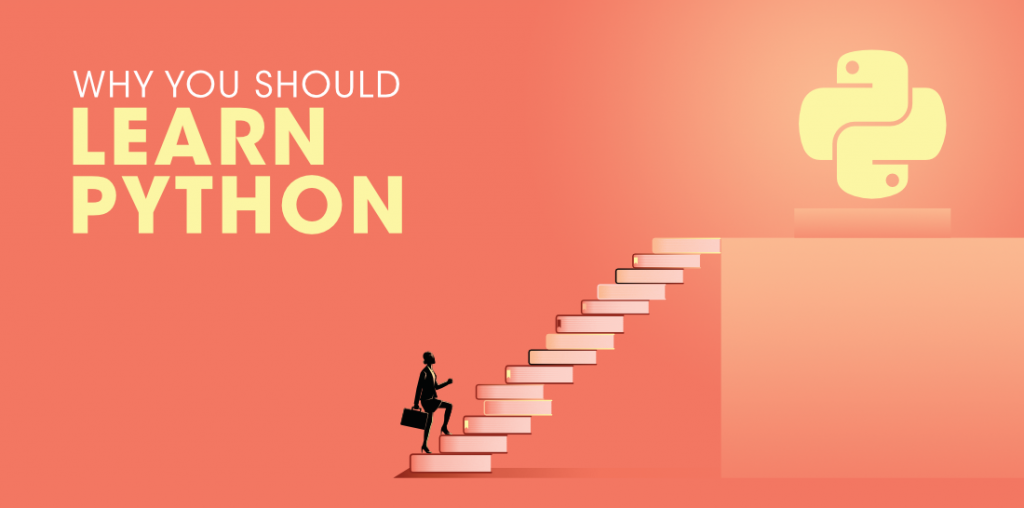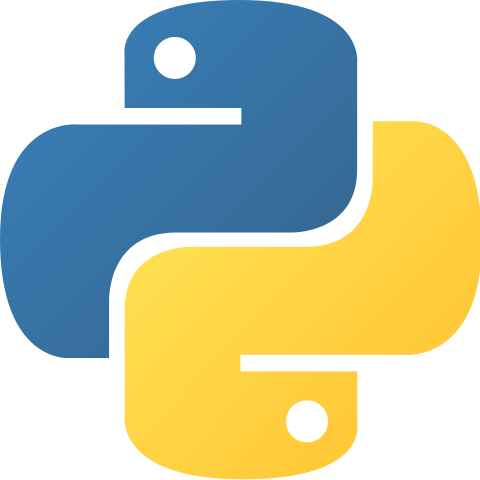8 min to read
Roadmap For A Python Developer
We are at the end of 2021 but still can’t get over Python as a general-purpose programming language. Python has helped a plethora of people in web development, data science, and web scraping. We have here made a clear python developer roadmap that serves as a complete guide for all the developers to begin their Python career from scratch. This amazing guide is a well-structured roadmap for Python developers at the start and intermediate levels. Here, Codersera is the perfect platform for you to
We are at the end of 2021 but still can’t get over Python as a general-purpose programming language. Python has helped a plethora of people in web development, data science, and web scraping. We have here made a clear python developer roadmap that serves as a complete guide for all the developers to begin their Python career from scratch. This amazing guide is a well-structured roadmap for Python developers at the start and intermediate levels.
Here, Codersera is the perfect platform for you to begin if you wish to learn Python programming. This article will assist you to know about turning into a reliable Python developer. Let’s dive in then.
How to become a Python developer?

The strategy behind learning new technology is a daunting job if you don’t know what to learn and how and what aspects should be taken care of. So, it is always preferable to go follow a complete roadmap. Our Codersera team has made this weekly roadmap for a Python developer so you can get proper time for interview preparation and revision. The roadmap is basically nothing but building a proper timetable for you for learning new skills from basics to advance levels and turning into a reliable professional. So, let’s start with the roadmap for a Python developer in 6 weeks.
Read: R vs Python for Data Science
Level 0: New Programmers (1 Week)
If you have joined new to the coding space, you might think of what turns a personal programmer. What all theories and topics should be covered to move ahead? Moreover, at the beginning of, the week of programming, you should go through these topics and knowledge.
- If you are a programmer, get ready for the daily text editor exercise. It’s a vital tool to learn the basics for any individual working on a computer. So, go ahead with learning text editors first.
- The modern IDE is the most significant tool for you and for any Python developer, the Jupyter notebook is highly famous currently.
- If you are not aware of the database, then it’s of no use moving ahead. Before moving further, start with knowing what exactly a database is and how it operates, what are syntax connected to it, and how to link it with the website well and applications you build.
- Excel is one of those tools that you need to know as a priority. It works well for project managers, programmers, and developers. Moreover, it has helped with a bunch of extremely helpful features and functions in data science.
- You should be aware of the basic concepts of networking to build and support their apps as users and clients will get access to your website from anywhere in the world.
So, it’s your initial week, just ensure, to begin with, learn text editors, databases, IDEs, excel sheets, and computer network basics.
Level 1: Basic Python (2 Weeks)
Once you are done well with the initial week to become a Python developer, we will then make a move towards learning beginner-level python programming. The main topics to cover while learning all the basics of Python language are discussed below:
- Data Types: Python has a hefty variety of data types which has some different variables. It assigns a memory byte set to every single type and for every data type-particular set of operations is permitted.
- Typecasting: You need to convert one data type into another in Python by employing the typecasting method. Various functions can be employed to transform strings into integers, numeric values, or float, into string types.
- Operators: These are the main symbols that assist the compiler to run some particular logical or mathematical operations.
- Data Structure: Data structure is a concept that assists in writing dynamic programs in any program. Certainly, Python is a high-level programming language with the basics of data structure as compared to other programming languages.
- Conditional statement: There reaches a point where some statement is to form in a way if some conditions are true. The conditional statement assists to run such sort of job. You will find several conditional statements such as nested if, if-elif, if, if…else, etc.
- Loops: These are the conditional statement that is formed as long as the conditional statement come back true. You will see 3 different types of loops in Python programming language which are while nested loop, loop, and for loop.
- Functions: These functions can be described as a whole group of statements in a program that runs a particular task. It is the reusable code employed to run a solely related task. Employing a function lessens any error in code as it is possible to test a certain function at a time and also assists in deducting the size of code as not writing the same code again in a program. Moreover, you can make a function and call that function to perform some sort of task.
Level 2: Important Topics (2 Weeks)
After going through the basics of Python for further 2 weeks, now we will head further to learn the intermediate-level topics for it. Some of those are mentioned below:
- Classes: These are the focal point of OOP and assist well to define the object in a view of its description however it divides the object itself.
- Objects: These in OOP is a data type made by the software developer itself. It has various properties, objects, and methods.
- Lambda: The function which is not well described employing the basic format of function mentioning def keyword is called lambda function.
- Inheritance: It’s the procedure of sharing the functionality within different classes. Moreover, it assists to describe a class completely based on another class.
- Reflection: It’s the basic ability of a specific code to be able to find out specific attributes about various objects that may be passed as basic measures to a function.
Moreover, it will take your 2 week period to learn all the above fundamentals of Python, an open-source programming language to prepare you further for building some great projects for learning apps.
Level 3: Practice Coding (1 Week)
Now, when you are finished learning all the fundamentals of Python language as an open-source programming language. For this, proper practice of coding is required and reach the final step to turn into a python developer. Following are some tips to follow up in the end stage of becoming a Python developer:
- Code every day: After learning new skills, it is vital to be consistent in what you practice. So, it is suggested to code daily as it assists in raising your skills and achieving a great command of the language.
- Going Interactive: Even when you are learning the fundamentals of Python or developing an application for it, attractive and efficient Python will be one of the best tools to work with.
- Take Breaks: While learning the language, it is vital to absorb and know what you have learned till now. According to research, it is suggested to take breaks while the study session as it assists you to work and learn effectively. Otherwise, there would be cracks in programming burnout.
- Solving Bugs: When you jump into making tough programs then, it is sure that you will come in contact with several bugs in them. However, instead of getting irritated, it is a good choice to take a moment of understanding and solve it as a section of the programming process.
- Contribute to open source: In the open-source model, the source code is publicly available and all can connect with it. So, it is suggested advice to work with an open-source project and put in your best efforts as much as possible.
Why learn Python?

Python is around 30 years old and despite its age, this language is evergreen, but with a good reason.
1. Python performs small tasks
With the arrival of fresh fields of application like machine learning and data science, Python is at its peak again. Writing scripts with Python was famous in the 90s.
2. Faster start and an easy syntax
You will find the syntax of Python similar to that of the English language. This language is somewhat simple to learn, even for beginners in this field. Python has fixed indentations in its syntax which turns its code simpler to read. If you have a deep understanding of it, then you can surely do a lot with it. A person who has already mastered other programming languages will have achieved some other helpful skills swiftly as compared to this.
3. Data science
The prime reason why you should go for Python is data science. Nowadays, there is a hefty demand for data scientists that are paid well and work in thrilling jobs. Programming skills, data visualization, predictive modelling, or any other skill? This field is highly diverse and attractive for scientists with great statistical knowledge.
4. Machine learning
Machine learning has been flourishing for years, and Python is the best language for writing algorithms for AI.
5. Python resources
Python has a detailed standard library and several other libraries as well. It has a hefty user base and is old, there are a plethora of resources that assist you to solve your coding issues. Around 125,000 external libraries are the reasons why Python is now open to various fields like machine learning, artificial intelligence, cloud configuration, and game development. For example, NumPy for data science, PyGame for game development, or Astropy for space-based research. If you could see in web development, Python is now performing a significant role despite the somewhat not good compatibility with mobile devices but is the backend of Reddit, YouTube, and Instagram.
6. Python community
The hefty community is one more reason added to why you should employ Python. It is an open-source programming language, which refers to you can theoretically achieve access to anything that affects the language. The hefty and lively user base of Python ensures an appropriate forum for your all questions and someone who can assist you.
7. Salary and next steps
It is possible with Python where you can combine easy scripts into tough applications, However, in several cases, the entire thing runs swiftly, safely, and with a low line of code than in other languages. Development turns easy with its great readability style and speedy editability. For learners, it has opened up several areas of activity to explore. Python developers are paid a handsome salary because it has a huge usage in web development, data science, and machine learning. A Python developer’s salary ranges from 50,000 Euro to 1,30,000 Euro on average mainly depending on your domain, experience, and location as well.
Why there is high demand for a Python developer?

Python has a hefty community that offers and fulfils the needs of various developers. This turns Python into one of the most demanded languages and is efficient and reliable. It’s in high demand as it provides a solution in various fields.
Scope for a Python developer
Python has achieved enough importance as compared to other programming languages and is promising for various developers. Being an open-source language, it is one of the most versatile programming languages. It can be used in system and application development programming. Moreover, lessening coding effort and better test performance make sure good programming.
Wrapping Up
So, here, you have learned about the complete roadmap for a Python developer in 6 weeks. Moreover, we have mentioned significant topics to cover also, along with helpful skills in Python on how to turn into a Python developer for securing a job. In case of any doubts, our coding team at Codersera will assist you.
FAQ
Q1. What does a Python developer do?
Ans- A Python developer has to perform coding, deploying, designing, and debugging several development projects, mainly on the server-side or back-end. It is widely used in scientific computing, web development, AI, machine learning, and academic research.
Q2. How much does a Python developer make?
Ans- The average salary of a Python developer in India is INR 427,293 p.a. for entry-level. Middle-level Python developer salary in India is INR 909,818 p.a. For an experienced developer, the salary is INR 1,150,000.
Q3. What is remote Python?
Ans- Remote Procedure Call (RPC) system helps you to call a function that is easily available on a remote server employing the similar syntax which is used when calling a function in a local library.
🚀 Try Codersera Free for 7 Days
Connect with top remote developers instantly. No commitment, no risk.
Tags
Trending Blogs
Discover our most popular articles and guides
10 Best Emulators Without VT and Graphics Card: A Complete Guide for Low-End PCs
Running Android emulators on low-end PCs—especially those without Virtualization Technology (VT) or a dedicated graphics card—can be a challenge. Many popular emulators rely on hardware acceleration and virtualization to deliver smooth performance.
Android Emulator Online Browser Free
The demand for Android emulation has soared as users and developers seek flexible ways to run Android apps and games without a physical device. Online Android emulators, accessible directly through a web browser.
Free iPhone Emulators Online: A Comprehensive Guide
Discover the best free iPhone emulators that work online without downloads. Test iOS apps and games directly in your browser.
10 Best Android Emulators for PC Without Virtualization Technology (VT)
Top Android emulators optimized for gaming performance. Run mobile games smoothly on PC with these powerful emulators.
Gemma 3 vs Qwen 3: In-Depth Comparison of Two Leading Open-Source LLMs
The rapid evolution of large language models (LLMs) has brought forth a new generation of open-source AI models that are more powerful, efficient, and versatile than ever.
ApkOnline: The Android Online Emulator
ApkOnline is a cloud-based Android emulator that allows users to run Android apps and APK files directly from their web browsers, eliminating the need for physical devices or complex software installations.
Best Free Online Android Emulators
Choosing the right Android emulator can transform your experience—whether you're a gamer, developer, or just want to run your favorite mobile apps on a bigger screen.
Gemma 3 vs Qwen 3: In-Depth Comparison of Two Leading Open-Source LLMs
The rapid evolution of large language models (LLMs) has brought forth a new generation of open-source AI models that are more powerful, efficient, and versatile than ever.